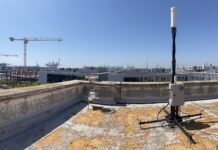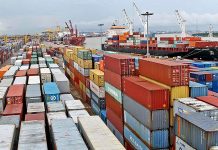
The Port of Los Angeles (POLA) has issued a Request For Proposals (RFP) seeking one or more teams of trucking companies and truck manufacturers to demonstrate zero-emissions short-haul drayage trucks.
Aiming to attract participation in its initiative, the Californian port is offering up to US$300,000 per truck toward the cost of 10 zero-emissions trucks and related infrastructure, with US$3 million total in grant funding available.
“This project represents the first in a series of financial incentives we will offer to accelerate the deployment of zero-emissions trucks,” said Port Executive Director Gene Seroka. “We’re eager to do our part and work with other public agencies and the trucking industry to expedite the turnover of the fleet.”
Proposals will be accepted through 3 p.m. (local time) on 4 January 2022, according to a statement.
The RFP directly supports the advancement of zero-emissions trucks to achieve the San Pedro Bay ports’ climate goals set forth in the 2017 Clean Air Action Plan (CAAP) Update. CAAP goals include transitioning the full drayage fleet serving the port complex to zero-emissions trucks by 2035.
Teams submitting proposals must consist of at least one licensed motor carrier (LMC) and one heavy-duty truck original equipment manufacturer (OEM). The pilot project will test the capabilities of current model zero-emissions drayage trucks in port operations within a radius of approximately 40 kilometres or less.
More than one proposal may be awarded a grant. The project and incentives are subject to approval by the Los Angeles Board of Harbor Commissioners.
All LMCs must be Port of LA Clean Truck Program concessionaires in good standing and registered in the Port Drayage Truck Registry, and all OEMs must provide proven truck models, said POLA in its announcement.
Project details, proposal requirements, demonstration guidelines, grant information, and evaluation criteria are available here. Port of Los Angeles will provide LMCs that operate five trucks or less with bonus points to encourage small business participation and economic equity.








